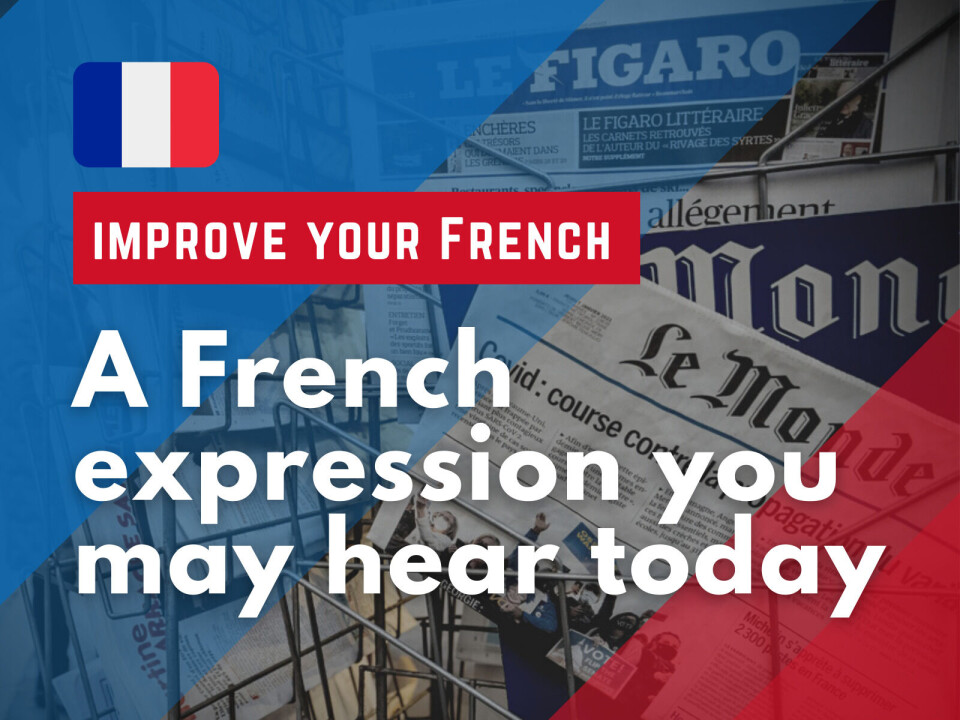-
Learning French: the meaning of ça va le faire
Plus, what other ways can ça be used?
-
Learning French: Have you ever dreamt in your target language?
From passive listening to active speaking, dreaming in French can indicate you are regularly practicing it
-
Learning French: what does fastoche mean and when should it be used?
Plus, can you guess the meaning behind more simple slang terms ending in -oche
Brasser de l’air and more French ‘air’ expressions
People in the Rhône-Alpes can now access hour-by-hour air pollution forecasts for specific streets via a phone application. We look at French expressions using the word ‘air’

A phone app allows people in the Rhône-Alpes region to keep up to date with air pollution levels street by street - and hour by hour.
Air to Go launched six years ago but since December 15, it allows users to monitor air pollution hour by hour, street by street and by pollutant, namely PM10, PM2.5, ozone, sulfur and nitrogen dioxide.
The observatory that monitors and informs on air pollution in the region, Atmo Auvergne-Rhône-Alpes, is behind the application.
The app, which is free, also gives the air quality index for the same and following day, and provides recommendations and regulatory actions in case of a pollution peak.
We look at three French expressions with the word ‘air’:
Brasser de l’air (literally ‘to brew the air’):
This expression means to say or do a lot in order to gain something but without success.
It comes from the idea that if one were to ‘brew air’, one would put in a lot of effort and receive nothing of substance in return.
Battre l’air (literally ‘to beat the air’):
This expression also means to make useless efforts – to do something in vain.
It was coined in the 17th century and again derives from the idea that if you were to ‘beat the air’, you would lose energy and not gain anything.
Avoir les quatre fers en l'air (literally ‘to have all four irons in the air’):
This expression means to find oneself on one’s back after falling over and has been in use since the early 19th century.
The fer (‘iron’) refers to fers à cheval – horseshoes. When a horse falls over, all four of its horseshoes become visible as it lays on the ground. The expression is now used for humans or any other animal.
Related articles
Mettre sa main au feu and more French fire phrases
Courir ventre à terre and other French Earth-related expressions
Tourner en eau de boudin: a French expression you may hear today
























